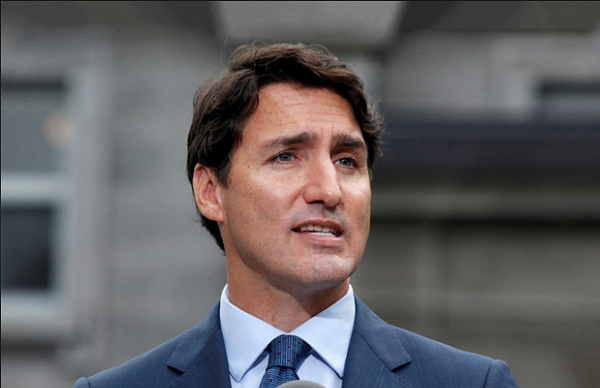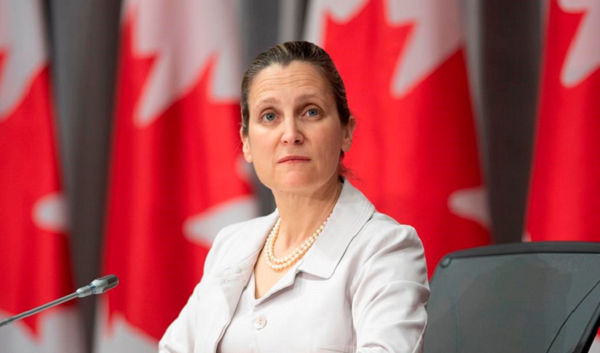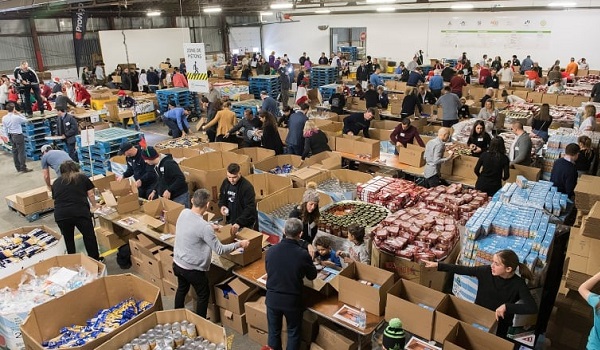U.S. advises India to co-operate with Canada and take criminal allegations against its officials seriously
The United States on Tuesday urged India to take seriously allegations its officials are involved in violent crimes in Canada and co-operate with the Canadian probes, as political parties in Ottawa took steps to launch an emergency parliamentary study of the controversy.
The comments from the United States will be welcome news to Prime Minister Justin Trudeau’s government, which on Monday did not say how Canada’s closest economic and security allies were responding to the grave allegations levelled by Mr. Trudeau and the RCMP.
At the daily U.S. State Department briefing in Washington, spokesperson Matthew Miller said India was not co-operating with Canadian authorities, as the White House had hoped it would.
“We have made clear that the allegations are extremely serious and they need to be taken seriously and we want to see the government of India co-operate with Canada in its investigation. Obviously, they have not chosen that path,” he said.
On Monday, the RCMP and Mr. Trudeau held separate press conferences at which they alleged that Indian diplomats and consular officials are tied to organized crime in Canada and violent incidents targeting the South Asian community including killings, extortions, harassment, threats and coercion.
The RCMP also said police had identified more than a dozen credible and imminent threats on the lives of people in Canada who are tied to the pro-Khalistan movement, which has the goal of carving out a separate Sikh state from Indian territory.
Mr. Trudeau said the officials were clandestinely collecting information on Canadians and then sharing it with criminal networks.
India has flatly denied the allegations.
Ottawa expelled six Indian diplomats, including the high commissioner, after the government said India refused to allow the officials to participate in the investigations. India in turn expelled six Canadian diplomats.
The Mounties released the allegations without any detailed evidence and declined to provide specifics about the number of crimes connected to Indian officials or how many investigations remain open.
On Tuesday, the RCMP said specifically there are three murders in the last two years connected to the issues raised on Monday. However, police spokesperson Charlotte Hibbard said only “some of these investigations have revealed connections to agents of the Government of India.” She declined to provide any more clarity despite multiple requests.
The federal government has already said that Indian officials have been credibly linked to the 2023 shooting death of Hardeep Singh Nijjar in B.C. On Tuesday, two senior government sources said a second killing linked to India is the September, 2023, slaying of Sukhdool Singh Gill. He also went by the name Sukhdool Singh, according to Indian officials and used the alias Sukha Duneke.
The Globe and Mail is not identifying the sources, who were not permitted to disclose the sensitive national security information.
India, in a Monday press release, called the claims from the RCMP and Mr. Trudeau “preposterous” and politically motivated for the Liberal Party’s domestic political gain. New Delhi also accused Canadian officials of making “assertions without any facts.”
Since Ottawa first levelled accusations against India for its alleged involvement in crimes in Canada, the United States has urged New Delhi to co-operate. Prime Minister Narendra Modi’s approach with Canada is very different from the position he has taken with President Joe Biden’s administration.
On Tuesday, an Indian inquiry committee met with U.S. officials on another investigation, into U.S. accusations that an Indian intelligence official was involved in a foiled plot to assassinate another Sikh separatist, dual U.S.-Canadian citizen Gurpatwant Singh Pannun, in New York. The Indian official, whom U.S. authorities have not named, is accused in a Department of Justice indictment of working with an alleged international drug and gun trafficker named Nikhil Gupta to arrange a murder-for-hire of Mr. Pannun.
In the case of Mr. Pannun, the State Department spokesperson said New Delhi has insisted that it is investigating the matter and takes the American allegations seriously. However, Mr. Miller would not say whether India has been co-operating with the U.S. on the investigation.
The criminal cases in Canada and the U.S. have tested their relationship with India, as the Western countries hope to forge deeper ties with New Delhi to counter China’s rising global influence. Underlining the high geopolitical stakes, Mr. Miller said the U.S. was still interested in working with India on issues in the region.
“India continues to be an incredibly strong partner of the United States,” he said.
Canada is similarly trying to keep some parts of its relations with India out of a deep chill. Late Monday, Trade Minister Mary Ng issued a statement saying the federal government is committed to maintaining its commercial ties with India.
“We will work closely with all Canadian enterprises engaged with India to ensure these important economic connections remain strong,” she said. “The Government of Canada remains open to a dialogue with India and we look forward to continuing our valued relationship.”
On Parliament Hill, the Conservatives and Bloc Québécois said they would support an NDP call to strike emergency hearings to study what steps the government can take to protect Canadians. The Liberals declined to say whether they support the move.
In a press conference, NDP Leader Jagmeet Singh urged Mr. Trudeau to level sanctions on the six Indian diplomats who were expelled by Canada on Monday and to ban the Rashtriya Swayamsevak Sangh network, which Mr. Singh described as a “right-wing, extremist, militant group.” The Hindu nationalist network is based in India.
The minority Liberals also did not provide a comment about the other two NDP demands.
Despite repeated question from reporters, Mr. Singh declined to say whether he and his family were among those targeted by the Indian government. In June, he told reporters he had learned that he is a target of foreign interference but he didn’t specify from which country.
“It’s not about me,” Mr. Singh said on Tuesday. “Talking about myself does not in any way help Canadians.”
China and India are identified by Canadian intelligence agencies as leading perpetrators of foreign interference in this country.
With a report from Alanna Smith in Calgary and Reuters.
This article was first reported by The Globe and Mail













